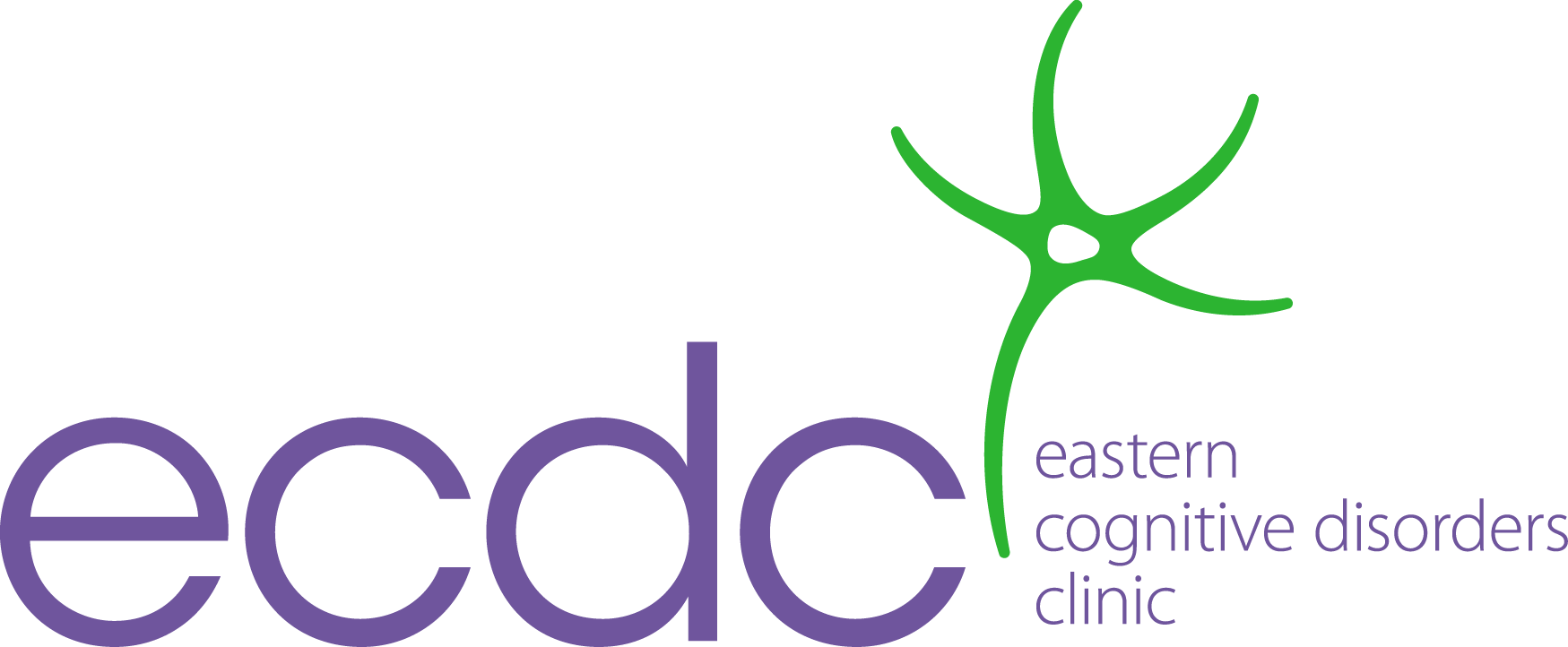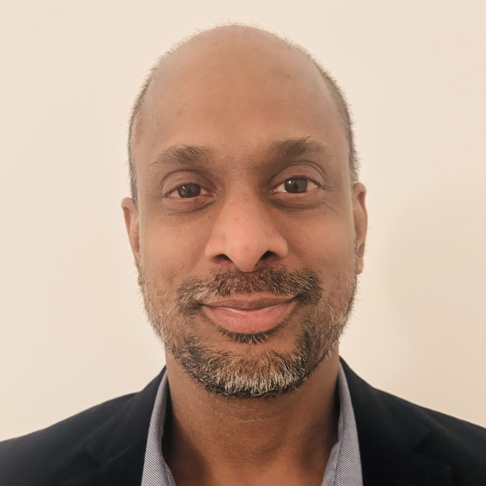About
The ECDC Clinic
The Eastern Cognitive Disorders Clinic (ECDC) offers a cognitive diagnostic service and is based at Box Hill Hospital, in the Eastern Health region of Melbourne, Victoria.
Referrals are accepted from medical practitioners for patients who have neurological illnesses with cognitive symptoms, and cognitive syndromes which may pose diagnostic difficulties. Patients are seen from throughout Victoria and interstate.
ECDC offers a multidisciplinary specialist service. Patients with suspected cognitive disorders may be diagnosed, and along with their family/carers, receive education regarding their condition and prognosis. Patients and carers may also be linked in to available support services.
ECDC has a special interest in progressive brain disorders (dementias) which occur in younger people. Young onset dementias are usually defined as people presenting before the age of 65. All staff members have extensive clinical experience and are highly skilled in the recognition and management of unusual cognitive syndromes. Whilst the ECDC provides diagnostic services for all types of dementia, it has established particular expertise in the diagnosis and management of FTD.
Our Staff
The clinic is under the direction of Behavioural Neurologist, Prof Amy Brodtmann, with neurologists A/Prof David Darby and Dr Chris Kyndt, and staffed by Cognitive Nurse Consultant Janet Bennet, Speech Pathologist Courtney Lewis, Occupational Therapist Laine Bradley, Neuropsychologist Dr Natalie Reidy, Research Officers Derek English and Dr Marcia Chew, and Clinic Co-ordinator Yin Hong.
Prof Amy Brodtmann
Behavioural Neurologist, MBBS, FRACP, PhD
Prof Amy Brodtmann is a cognitive neurologist, with a research background in stroke, neuroimaging and dementia. She received her medical degree from the University of Melbourne before completing specialty training in neurology at Austin Health and the Royal Melbourne Hospital.
Her PhD was completed in 2004 in functional magnetic resonance imaging, stroke and normal aging. She travelled to Chicago to do post-doctoral work at the Cognitive Neurology and Alzheimer’s Disease Centre, a recognized centre of excellence in frontotemporal dementia.
Upon her return to Australia and the Florey Neuroscience Institutes (FNI) as a NHMRC Post-Doctoral Research Fellow, she continued her research interests in imaging, stroke and dementia. She established the ECDC in 2008, in response to a Melbourne need for a specialist FTD clinic. She is an Associate Editor for the American Academy of Neurology's primary journal Neurology. She also became the Co-Head of the Behavioural Neuroscience division of FNI in 2009, and continues to be active in research in vascular dementia and FTD, as well as advocacy for service provision and carer support in FTD.
Dr Chris Kyndt is a Cognitive and General Neurologist.
Dr Chris Kyndt
Neurologist, MBBS, BSc, FRACP
Dr Chris Kyndt MBBS BSc (Imperial College London 2008) FRACP completed a 2- year Cognitive Fellowship at the Eastern Cognitive Disorders Clinic (ECDC) with an ongoing Consultant appointment. He has additional roles at the Cognitive Dementia and Memory Service (CDAMS) Wantirna Health, Cognitive Neurology Service Royal Melbourne Hospital and the state-wide Victorian Stroke Telemedicine (VST) service. He has specific expertise in young onset and atypical dementias, fronto-temporal dementia, primary progressive aphasia and autoimmune encephalitis. He is a trial investigator at the Eastern Clinical Research Unit and Melbourne Health Cognitive Trial Unit with both principal and sub-investigator roles on a number of Alzheimer’s disease trials. He was a research study coordinator on the ASPirin in Reducing Events in the Elderly (ASPREE) trial focusing on the cognitive assessment process and dementia end-point validation. He continues involvement on this study as an adjudicator on the dementia end-point subcommittee. He was part of the Florey Institute Brain imaging Study (BICS) providing screening for Alzheimer’s disease patients for future trial enrolment. He is currently an investigator with the MRFF-funded Autoimmune Encephalitis Consortium Project focusing on the cognitive arm evaluating acute and chronic cognitive outcomes. He participates in audit and teaching initiatives at each of his hospitals.
Dr. Maja Christensen is a clinician-researcher specialising in cognitive neurology.
Dr. Maja Christensen
Cognitive Neurologist, BBus, BMBS (2014, Deakin), PgDip, FRACP
She completed her general neurology training at St Vincent's Hospital, followed by two years of subspecialty training in cognitive neurology at the Eastern Cognitive Disorders Clinic (ECDC). She is a Consultant cognitive neurologist at the ECDC and general neurologist at Eastern Health. She has also contributed to clinical care at the cognitive clinic at Alfred Hospital and to clinical trials, serving as an investigator in Alzheimer's disease and frontotemporal dementia treatment trials at both Alfred Hospital and Eastern Health.
She is currently undertaking a PhD at Monash University, her research, "Artificial intelligence for Diagnostically Augmented PhenoTyping for Dementia (ADAPT for Dementia)," explores the use of advanced artificial intelligence to enhance the classification and understanding of dementia. Dr. Christensen is committed to investigating how AI technologies can enhance patient care and improve clinical outcomes in neurological disorders. Additionally, she is dedicated to training the next generation of neurologists, providing clinical supervision and innovative teaching.
A/Prof David Darby is a Cognitive Neurologist
A/Prof David Darby
Cognitive Neurologist MBBS PhD FRACP FBN FANZAN
A/Prof Darby graduated from Medicine at the University of Melbourne in 1981, completing a PhD in neurology and neuropsychology in 1990, and his neurology training in 1991. He served as an instructor in Behavioral Neurology at Beth Israel Hospital, Harvard Medical School from 1992 to 1995.
He was Chairman of the Memory Disorders Service at the Repatriation Campus of the Austin & Repatriation Medical Centre from 1997 to 2000, and consultant to the Eastern Cognitive Disorders Clinic, and regional Victoria.
Prof Darby has published over 130 research papers in international peer-reviewed scientific journals and has co-authored a neuropsychological textbook with Prof Kevin Walsh. He was a founder for CogState Ltd in 1999 which has developed computerized cognitive testing instruments for early detection of cognitive impairment including dementia in the earliest stages, and is also Associate Professor at Monash University and the University of Melbourne. Awarded Ig Nobel Prize in Medicine 2011 for this work. He is a clinical investigator for the Australian Imaging Biomarkers and Lifestyle (AIBL) study. His current research interests are focused on wide-scale community screening for prodromal dementia, both Alzheimer’s disease and fronto-temporal dementia, cognitive evaulation of concussion in sport and multiple sclerosis. He is the developer of iOS and Android applications to aid cognitive testing.
Laine Bradley
Occupational Therapist
Laine is an occupational therapist providing specialist occupational therapy services to the Eastern Cognitive Disorders Clinic.
Laine has worked as an occupational therapist across a range of settings in both Australia and the UK, including public and community health, residential care and the not-for-profit sector. She has extensive experience in the assessment and management of cognitive impairment and dementia, and has worked as a dementia consultant providing specialist advice and clinical support to clients, carers and staff in managing changed cognition, behaviour and complex care issues. Laine has a Master of Clinical Leadership and has delivered dementia education to health professionals and the public She has a particular interest in functional assessment of cognition and occupation-focused dementia care.
Janet Bennett
Cognitive nurse consultant
Janet Bennett is a Cognitive Nurse Consultant with extensive experience in supporting people living with dementia as well as their carer`s by providing behavioural management strategies as well as linking them into relevant community services.
Janet has been nursing for over 25 years, originally studied in Cape Town, South Africa, and moved to Melbourne, Australia in 2001. Janet also has an Associate Degree in Dementia Care and has worked as an Accredited Dementia Consultant across Australia, providing specialised education, support, and training to staff, clients and their families about changes in cognition and strategies on how to manage behavioural and psychological symptoms of dementia (BPSD).
Dr Jodi Samartgis is a Senior Clinical Neuropsychologist
Dr Jodi Samartgis
BSc(Hons), DPsychClinNeuropsych
Dr Jodi Samartgis is a senior clinical neuropsychologist. She completed her doctoral degree in clinical neuropsychology at La Trobe University in 2012 and has broad clinical experience in the Victorian public health sector across a range of different settings. She currently has additional roles at the Royal Melbourne Hospital Neuropsychiatry Centre and at Mercy Mental Health and Wellbeing Services. Jodi is a clinical supervisor and has previously worked as a sessional lecturer in undergraduate and postgraduate psychology. Her research experience includes roles as a study rater for Biogen’s EMERGE and ENGAGE clinical trials and as a research coordinator for the Pathways in Autism Spectrum Disorder study at the University of British Columbia. Jodi joined the ECDC team in March 2023.
Dr Indranath ‘Kavi’ Jayasinghe, DPsych(ClinNeuropsych), BBehavSc(Hons I)
Dr Kavi Jayasinghe
Senior Neuropsychologist DPsych(ClinNeuropsych), BBehavSc(Hons I)
Dr Indranath ‘Kavi’ Jayasinghe is a Senior Clinical Neuropsychologist in the Eastern Cognitive Disorders Clinic (ECDC), undertaking outpatient neuropsychological assessments in the ECDC, generally to assist with diagnostic clarification. He completed a Doctor of Clinical Neuropsychology at La Trobe University examining emotional reactivity, cognition and behavior in children with and without autism, in which he uncovered a novel method of differentiating heterogeneity across autism presentations. He has since worked across various public and private roles across a number of Victorian health networks encompassing assessment in pediatric / developmental, adult and older adult neuropsychology, with particular emphasis on diagnostic neuropsychology. In addition to working in the Eastern Cognitive Disorders Clinic (ECDC), Kavi currently works as a Senior Clinical Neuropsychologist in inpatient neuropsychology roles for Eastern Health at Box Hill and Maroondah Hospitals.
Trish Joseph provides speech pathology services to the Eastern Cognitive Disorders Clinic
Trishna Joseph
Certified Practising Speech Pathologist (CPSP)
Trish uses speech pathology in the diagnosis and treatment of speech, communication, and swallowing disorders. This includes difficulties with speaking, listening, understanding language, reading and writing, social skills, stuttering, voice, and eating and drinking. Speech pathologists work with people who have difficulty eating and drinking, and communicating due to developmental or acquired disorders such as cerebral palsy, learning disability, stroke,brain injury, neurological disorders and dementia.
ECDC Associates
Dr Adam Vogel
Speech Pathologist MSc PhD
Adam leads the Centre for Neuroscience of Speech at The University of Melbourne where his team work towards improving speech, language and swallowing function in people with progressive and acquired neurological conditions.
He is a recipient of an NHMRC Career Development Fellowship, a senior lectureship in the Department of Audiology and Speech Pathology at The University of Melbourne and a Humboldt Fellowship based at the Hertie Institute for Clinical Brain Research, Tübingen Germany. He holds clinical degrees in psychology and speech pathology from the University of Queensland and a PhD in behavioural neuroscience from The University of Melbourne. He is an honorary speech therapist at Great Ormond Street Hospital London, where he undertook his early clinical training and continues to work as consultant speech pathologist for the Friedreich Ataxia Clinic in Melbourne. His group have strategic clinical research alliances with the Eastern Cognitive Disorders Clinic, the Calvary Health Service Bethlehem, the Neuropsychiatry Unit, Royal Melbourne Hospital and the University Hospital Tübingen, Germany.
Dr Antonia Clarke
Cognitive Neurologist & Neurophysiologist
Dr Antonia Clarke is a consultant neurologist and neurophysiologist whose work focuses on advancing clinical care, medical education and brain health equity. She obtained her medical degree from the University of Sydney and completed her neurology advanced training at the St George and Royal Prince Alfred Hospitals in Sydney before moving to Melbourne to undertake cognitive neurology and neurophysiology subspecialty training at Box Hill and the Austin Hospitals. She co-leads the Clinical Teaching Fellowship at the University of Sydney, with her commitment to medical education recognised internationally. Dr Clarke has a strong interest in improving health care access for rural and remote patients. Alongside her work as a neurologist, Dr Clarke is completing a PhD through Monash University evaluating brain health with Aboriginal and Torres Strait Islander communities living across NSW and Victoria.











